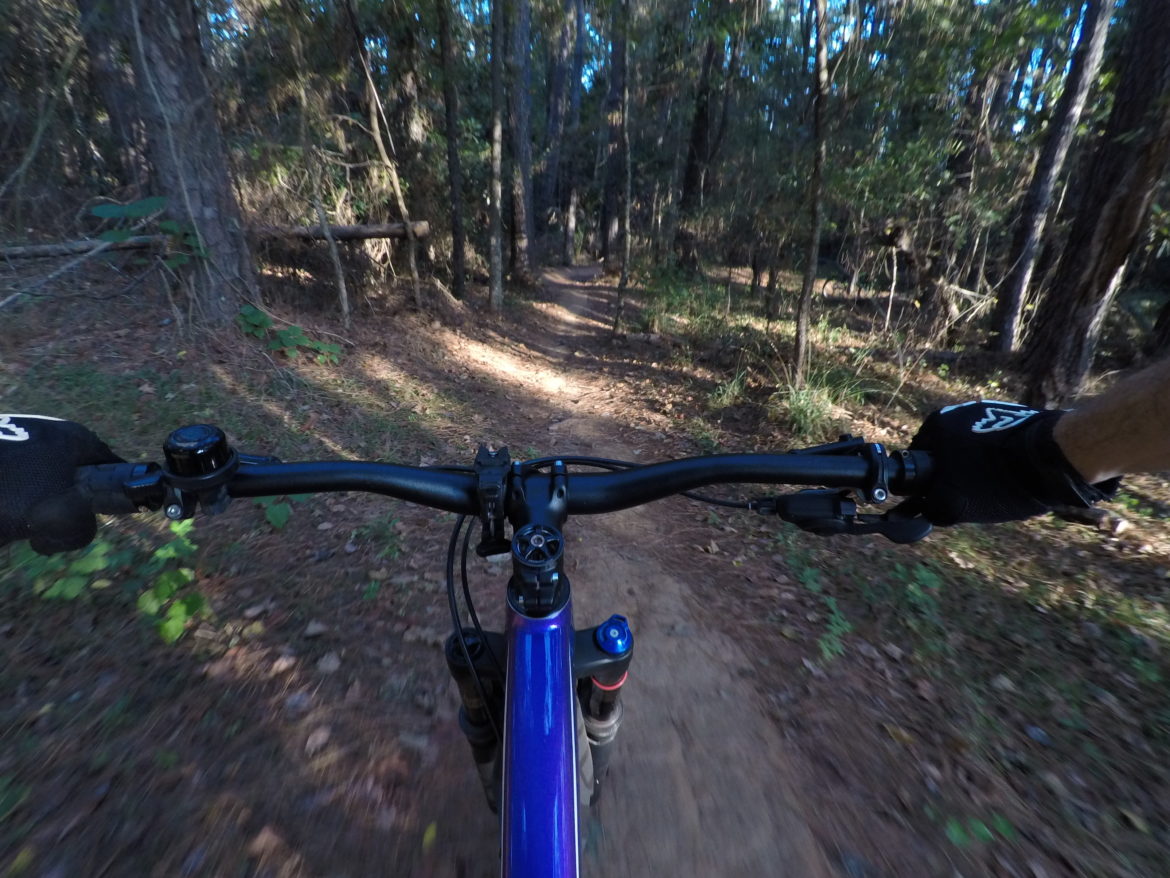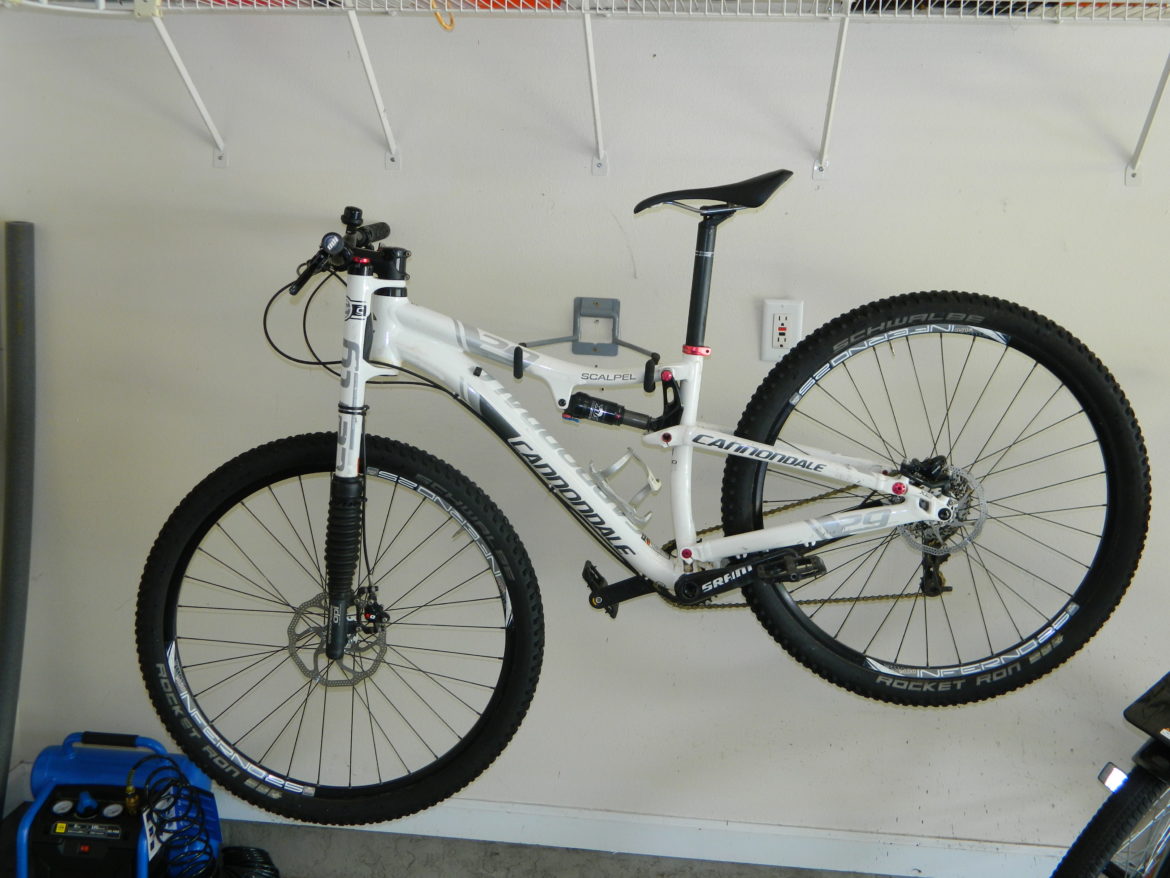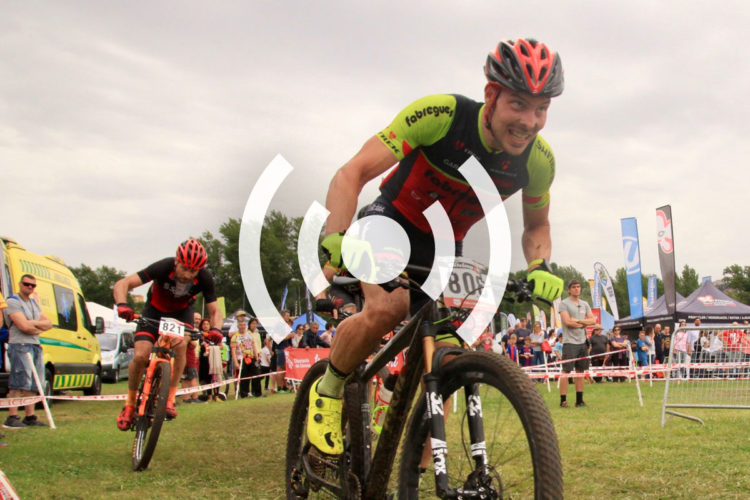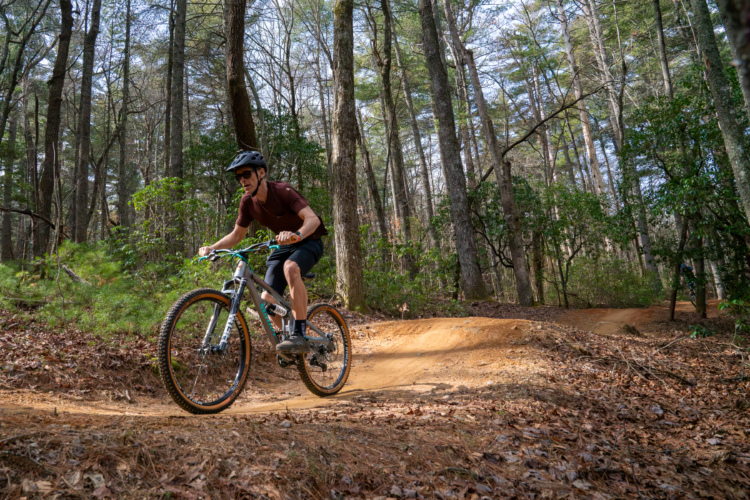
I injured myself riding last New Year’s Eve when I did something I wasn’t mentally committed to doing. The result was a nasty fall off a wooden feature. To make matters worse, I stretched out my arms instead of tucking and rolling. My right arm and shoulder hit the ground with my full body weight on them, and I partially tore and severely strained the muscles, tendons, and ligaments.
My injury was minor compared to the injuries Trent and many other riders have sustained. However, I have never been hurt that bad in my life. Thankfully, I did not need surgery, but my recovery took time and patience. I could barely move my arm for two weeks, and I could not ride my bike for over a month.
I realize in hindsight that I needed to experience the injury in order to become a better rider and a better person. Here are five reasons why I am grateful I was injured.
It helped me better understand and appreciate the inherent risks of mountain biking

I’m not careless when it comes to riding, but I was cavalier about the dangers of the sport. I knew the risks, but I didn’t believe I would get injured because I had avoided serious injury in the past. The moment I injured myself that mindset evaporated. Now, I appreciate the risks associated with mountain biking. I’m not overly cautious, but I am grateful for every ride I complete without incident.
It forced me to go back to the basics of riding

When I started riding again, I rode doubletrack trails or beginner singletrack trails because more advanced, technical trails were too painful on my injured shoulder. I focused more on my riding technique during this time because I didn’t have to focus as much on the trail itself. I worked on my riding position, cornering, and braking. Focusing on the basics paid dividends when I was able to ride more advanced trails. Had I not been injured, I would have never voluntarily spent that much time working on those fundamental skills.
I appreciate my successes more and criticize my failures less

I celebrated every milestone, no matter how small, that I accomplished as I worked my way through the recovery process. I congratulated myself every time I cleared a minor feature or successfully rode a more technical trail. Instead of getting down on myself for what I couldn’t do, I praised myself for everything I was able to do, celebrating the progress I made as my recovery advanced. It encouraged me to keep going and keep pushing myself. Having a positive attitude definitely fueled my recovery. Additionally, it has helped me enjoy my rides even more.
It made me think outside the box when it came to my fitness routine
I have worked out in a gym since I was 18, doing conventional weightlifting with some cardio thrown in for good measure. After my injury, I couldn’t do my normal workouts because I couldn’t move my right arm in the same way. I had to start fresh, and find new exercises that wouldn’t aggravate my injury but still provide me with the same benefits. I discovered new exercises involving kettle bells, Bosu balls, and my own body weight. These exercises have increased my fitness level and improved my riding. I would have been far less likely to change up my routine and attained these benefits if not for the injury.
It made me consider my bike set-up and the type of bike I rode

I decided to switch from an XC bike to a trail bike after my injury. 
The geometry of the trail bike gave me more confidence descending and cornering, which were two areas I needed to improve.
I injured myself while riding a bike with handlebars that were too narrow for me. They made the front end twitchy, and they made me a nervous rider. After my injury, I switched to wider handlebars, which made a difference in the way the bike handled. The front end felt planted, and I had greater leverage in the corners. I became a more confident rider, but something was still missing. The bike was an older XC bike. It was fast, but not very stable. Ultimately, I sold it and bought a trail bike. It’s a little heavier, but it is well suited to the rough, technical trails I enjoy riding. I’m slower in some aspects, but I’m faster at cornering and descending, which make my rides much more fun. I don’t think I would have been so quick to change bikes if I had not been injured.
Injuries aren’t fun but they can bring unexpected benefits

It took me a while to recover from my injury, and understand how the injury benefitted me as a rider. Now, I appreciate each ride, and I relish every moment I spend on the trails. I hope I never experience another injury, but I am grateful for the benefits I gained as a result of this one.
For riders who have been injured, how did your injury benefit you as a rider? Please share in the comments section below.






















17 Comments
Nov 5, 2019
Assuming you can get a similar level of education without the associated penalties, why would you prefer the penalties? We all need to endo at least once, break a collarbone, or have titanium screws somewhere in order to really appreciate mountain biking?
Nov 5, 2019
Nov 4, 2019
I'd like to say that I learned a lot from these wrecks and I won't make the same mistakes again, but I know that that's probably not true. I'll probably still do dumb, reckless stuff since I'm not good at learning from my mistakes. I've gotten a little too comfortable with pushing the envelope, and I tend to get in over my head very quickly. I guess I thought I'd keep getting lucky. I've always been resigned to the idea that I'd crash and injure myself badly in some way, but that crash was always a hypothetical, future crash, never to happen in the present. Oh well. I hope that I can at least be an example of what not to do.
Nov 4, 2019
Nov 5, 2019
Nov 5, 2019
Sad note is that even with some insurance my medical bills are rapidly approaching $25,000.
Moral of the story is, give yourself time to heal, its going to take way longer than you expect , and stay off the meds, live with the pain, it will stop you from doing stupid shit like i did
Nov 5, 2019
Nov 8, 2019
A trip “over the bars” while clipped in resulted in a detached Hamstring.
Surgically repaired - tendon “growing” back on.
Being “Old” and “under confident” Prior to the crash, it will be interesting to see where my riding is at when I return.
Ironically, pre crash, I’d paid a deposit on a New Giant Reign (2020 Pro 0 29er) because I was doing a few “bigger” jumps.
I pedaled it gently around the car park yesterday......
Nov 8, 2019
Nov 8, 2019
Some excellent points.
I believe modern, long travel bikes, are more slightly more prone to “over the bars” than shorter travel bikes.
I was taken by surprise to go over the bars when I did.
I’m likely to pay for some lessons/coaching to check the basics (Self taught on a modified “dragster” in the early ‘70’s) and learn the slacker bike and flat pedals.
Nov 5, 2019
Recently I rode out to the crash site. I was shocked at how cavalier I'd been in my riding. I was sick at my realization that looking at the cliff I went off and the ravine I fell into, littered with sharp boulders and downed trees - i cheated death, even severe injury.
I too learned - to slow down, pay attention, focus on the trail here and now, celebrate each ride. I struggle with decreased confidence, PTSD (i lay away the base of the cliff for 3.5 hrs before being rescued, i remember the fall vividly, no pain meds until after i was hauled, bones crunching together in my pelvis back up the way i came down), feeling slow, etc. But i remember my surgeon said recovery will take a year. I have another surgery in 2 mos to repair my right shoulder. More PT. I'm alive I can ride. Life is great!
Nov 6, 2019
Nov 8, 2019
Certainly my life is currently poorer for no riding. (I’m a bit of a “one trick pony” - “bikes”, motor or pedal.)
Riding on “flats” initially will be another fun chapter.
The “limits” I was consciously “pushing” will likely be strongly recalibrated.
Trying to enjoy what I can do, not what I wish I could do....... (Or what most 15yo’s can do.....)
Nov 7, 2019
Nov 8, 2019
Nov 7, 2019
Nov 7, 2019
I like the elements you've included, but I'd like to add a word of caution about putting too much stock in different equipment making anyone a better or "safer" rider.
As an MTB instructor, I see a lot of riders on a lot of different equipment, old and new. And while I DEFINITELY love a lot about modern trail bikes from the last 6 years or so, different equipment will not correct poor, or let's say problematic techniques.
STABILITY for example, is inherently about BALANCE and MOVEMENT of the bike and rider. Sure, a longer wheel base and wider bars FEEL more stable, but if you are seated or too far back on a rough descent, you are a passenger on your bike and at the mercy of your equipment because you are not actively managing stability. More travel and a longer bike will probably allow you to ride slightly harder trails, faster, but you end up in the same place, hanging on an hoping you succeed.
For example, the low bottom brackets of modern bikes are a HUGE problem for many riders. (They are. I watch people...). Crank impacts are probably the number one reason I hear about advanced riders crashing, myself included. Being aware of this limitation is really important, as is learning techniques to manage it.
In the same vein as "Going back to basics", I'd suggest you take a lesson (or several) and bolster your updated outlook with some skills enhancement. Especially if you are moving from a 2000 Stumpjumper to a 2020 Devonci Troy. Enhancing your skills will help you understand the tradeoffs with equipment choices. There is such a thing a bar that is too wide...
Have fun out there.